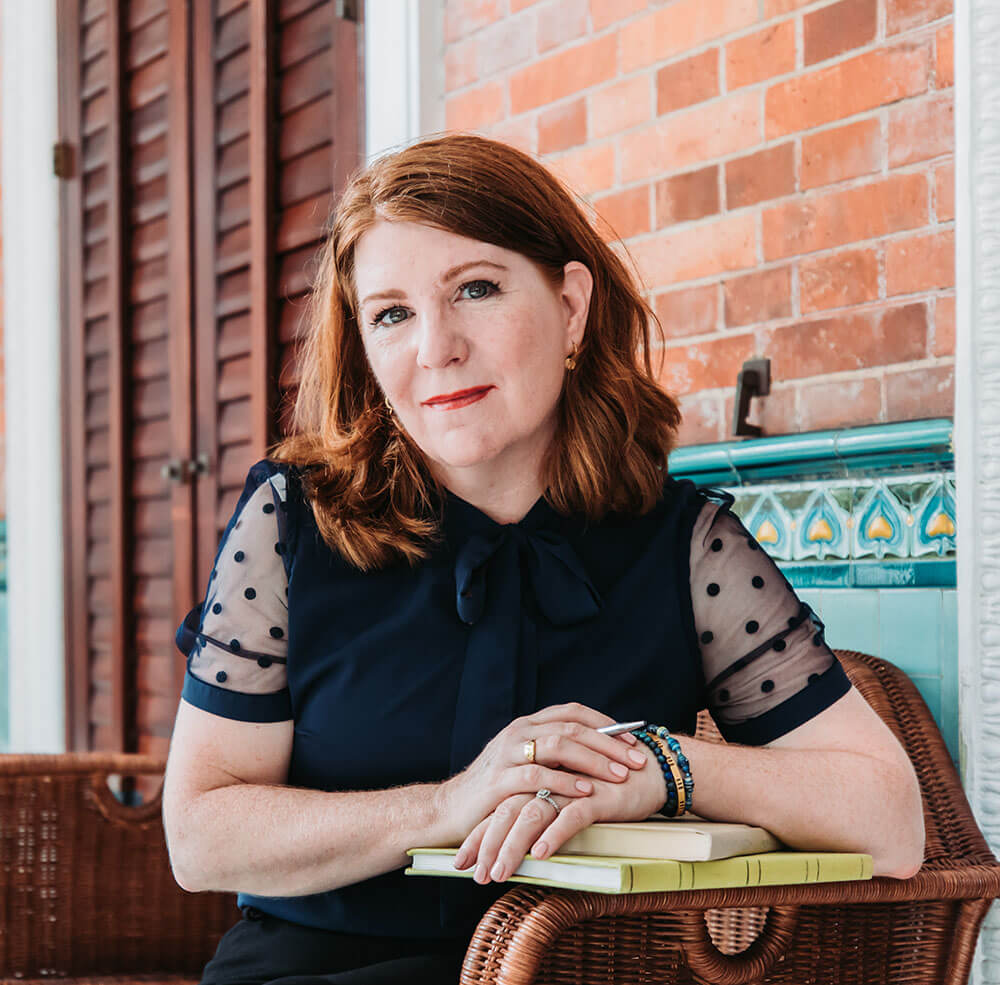As humans, we make stuff up. All the time. We imagine something and create it (I see you, inventions and cities and the Marvel Cinematic Universe, et al.)
We make up stories and laws and business and art. We think it or speak it into being. Words are powerful and can be wildly generative or destructive. (Check out this video of an experiment IKEA did to see how a plant would react if people said mean things to it.)
If we construct our lives through what we think and say, are you aware of what you’re making? And if it’s what you want to make?
You’ve heard the terms ’empowerment’ and ‘disempowerment’, or ’empowered and disempowered language’.
I kept hearing the phrase ‘disempowered language’ and, tbh, I only had some idea of what it meant. So, for the folks at home, here’s what I am learning about language and how what we say builds our lives.
Basic definitions of empowered and disempowered
Empowerment is the choice to be in charge of your own life, your own destiny. It comes from our own personal convictions about how much control we have, our idea about own agency in our lives.
How much control we think we have is at the heart of disempowerment and empowerment. And here’s the thing: I don’t think most of us are aware of how disempowered we are choosing to be.
I don’t think most of us are aware of how disempowered we are choosing to be.
Are there things that are outside our control? Absolutely. Other people and culture and laws and how those impact us are part of the systems we operate in.
And yet, I would offer up the idea that we have a lot more control than we are acting like we do.
When we feel empowered in our lives, it opens up possibilities and expands what we think we are capable of. Think of any 4-year-old with a cape. When we feel disempowered, we make choices that keep us small. We don’t see that we have a lot of choice in the matter and we feel kinda victimized about our lives and what’s possible.

Empowerment is a spectrum–there are places we feel more empowered (home life or work life when you are really killing it, like defeating Thanos, amiright?) and places where we aren’t. Like going to the DMV-I definitely feel like I am at the mercy of whoever is behind the desk and am pretty powerless to impact their decisions toward me.
Here’s where language fits in: Taking the empowerment/disempowerment spectrum into account, we have a general sense of how much power we think we have over our own lives. Question: are you going through life more like a victim or more like a kid in a cape?
Here’s the test: notice the words you use.
Am I disempowered? How to know
Check out these phrases and pay attention to how often they appear in your speech–they are all related to a perceived lack of power and control:
A list of disempowering words
|
|
A colleague described disempowering phrases as any response you would not want to, “Will you marry me?”
(Even a clear “No” is a response you would want, trust me. This is not a place for lack of clarity from either person.)
If your world is built by your words, notice how all of these decrease your control. Superlatives like ‘always’ and ‘never’ reduce choice. Vague language like ‘sure’ and ‘maybe’ create a tension of indecision. And then there’s the ‘shoulds’ which are rooted in a fear of some kind-fear of judgement, fear around controlling someone or something, etc.
In fact, the argument can be made that all disempowered language is rooted in fear.
As you use the words above, consider that we are making our lives—building choices based in fear and a low sense of control, or agency. Each time we use these words, we tell ourselves we are not in control of our life.
So how do we shift this?
Here is where a little bit of linguistic magic happens: changing the words you use creates different possibilities. Your brain shifts into potential mode–it starts to work on the problem of what is possible. The situation itself doesn’t have to change for you to shift your relationship to it, and thus, what’s available to you.
I am not making this up. There is a ton of research about how language impacts how we perceive the world and our relationship to it. (Check out this TedTalk about how language shapes the way we think.)
Instead of the words in the above list that create a lack of power in your mind, swap them out for these words:
A list of empowering words
|
This is what the shift looks like:
I wish I would stop eating all this sugar. –> I will stop eating all this sugar.
I need to get a better job. –> I don’t know how, but I will get a better job.
You never help with chores. –> My request is that you help with chores.
Notice how the difference feels in your body and if any possibilities open up in your mind.
Language builds our world. It limits or expands how our brain looks at a situation and, thus, what we move to generate or destroy.
If you want a different life, choose different words to describe yourself, the current situation and your future.
The first step is to notice it and the next step is to replace any disempowered words with empowered words.
Change your words, change your life.
Or: I get to change my words; I get to change my life.





